Local News
150 attend special event marking re-opening of Holocaust Education Centre
ByBERNIE BELLAN On January 25 approximately 150 individuals were in attendance at the Asper Campus for the reopening of the Holocaust Education Centre.
As Jewish Heritage Centre of Western Canada Executive Director Belle Jarniewski noted in her opening remarks to the audience gathered in the Berney Theatre for the event, “the museum’s very existence is thanks to the efforts of Holocaust survivors themselves who contributed to the original Holocaust Education Centre 25 years ago” when the Campus first opened.
Today, Belle noted, “the memory of the Holocaust is under siege…Survivors of the Holocaust,” of whom some 1500 – the vast majority of whom are at least in their nineties now – settled in Winnipeg after the war. (The names of all those Holocaust survivors are displayed on one of the walls of the newly renovated museum, as John Longhurst explains in the adjoining article.)
Another component of the museum, Belle added, are displays focusing on the history of anti-Semitism in Canada, beginning from the 1920s to the present day.
Jewish Federation of Winnipeg President Gutstavo Zentner, while looking out at the audience, remarked that he was “thrilled to see so many young people here tonight. I hope they put to good use the touch screens in the Holocaust Education Centre.”
Special guest speaker Irwin Cotler, Canada’s Special Envoy on Preserving Holocaust Remembrance and Combatting Antisemitism, who was in Israel on January 25, had recorded a 20-minute message for audience members, which was played on a large screen.
In noting the significance of the reopening of the HEC this particular week, Cotler observed that January 25, 1945 was a very important date in history for two reasons: It was on that date 78 years ago that Auschwitz was liberated, but it was also on January 25, 1945 that Swedish diplomat Raoul Wallenberg was arrested and disappeared in Budapest – but not before he had helped to save over 100,000 Hungarian Jews from death camps.
Cotler went on to enumerate a number of lessons to be learned from the Holocaust, including that, “the abiding universal lesson to be acted upon, wherever we are, is that we are each the guarantors of each other’s humanity.”
The second lesson, Cotler stated, is that “the Holocaust was a paradigm for radical people and anti-Semitism is a paradigm for radical hate.”
“As we meet on the 75th anniversary of the liberation of Auschwitz,” Cotler said, “let us remember that 1.3 million people were deported to Auschwitz, but 1.1 million of those were
ews. Jews were murdered at Auschwitz because of anti-Semitism but anti-Semitism did not die at Auschwitz. It remains the bloody canary in the mineshaft of global evil.”
The third lesson is the danger of “state sanctioned incitement to hate and genocide.”
The fourth lesson is “the proliferation of Holocaust denial.” Cotler referred specifically to the trope in recent years of accusing Jews of “manufacturing the Covid virus and profiting from it” as a manifestation of an outgrowth of Holocaust denial.
“Fifth is the danger of silence in the face of evil,” Cotler said. “Silence means coming down on the sound of the oppressor, not on the side of the victim.”
“Number six is the danger of indifference and inaction – as in the example of the Tutsis” (in Rwanda). “What makes the Holocaust and other genocides so unspeakable are not just the atrocities themselves, it is that this could have been prevented. Nobody could say ‘we did not know.’ We knew but we didn’t act.”
What one person, Raoul Wallenberg, did, in saving 100,000 lives, “the whole international community did not,” Cotler observed.
In closing, Cotler suggested that it is not true that “if there had not been a Holocaust there would not have been a State of Israel, but rather it is the other way around: If there had been a State of Israel, there would not have been a Holocaust.”
Other speakers in the Berney Theatre on January 25 included: Mark Kantor, President of the Jewish Heritage Centre of Western Canada; Peter Flegel, Executive Director, Government of Canada’s Anti-Racism Secretariat; Andrew Smith, Manitoba Minister of Sport and Cultural Heritage; Janice Lukes, Deputy Mayor, City of Winnipeg; and Candace Hogue, who was the guest curator for the Holocaust Education Centre.
The final remarks were delivered by Holocaust survivor – and longtime educator, Edith Kimelman, who began with a wry nod to the lengthy list of speakers who had preceded her when she said: “You are quite fortunate that I am the last one to speak. I can well remember from my years as an educator the short attention spans of students the last class of the day.”
Edith noted that when she has spoken to many student groups over the years, “I was always trying to convey the perspective of a six-year-old girl and her experiences in the Holocaust.” It was her goal, she said, to explain the Holocaust to groups that are three and four generations removed from the Holocaust – and especially newcomers to Canada,” who would likely have very little knowledge of the Holocaust.
She would tell those students – also to new Canadians who had either very little knowledge of the Holocaust or none at all, that “when I arrived here (in Winnipeg) at age 14, I had nothing. All I had was the baggage of the Holocaust. Indelible trauma, however, did not prevent me from seeking a better future.”
And with that astute observation which can well sum up the experience of almost all Holocaust survivors, the portion of the evening in the Berney Theatre came to a close. At that point, while many who had been in attendance partook of refreshments, various individuals made their way to the HEC itself, where they were able to see firsthand the tremendous amount of work that had gone into its renovation.
The HEC is open during all hours that the Asper Campus is open,
Local News
New Israeli restaurant opens in River Heights

By BERNIE BELLAN (July 6, 2025) It’s been a long time since our community has been able to welcome the opening of a restaurant that specializes in Israeli food.
That void is now going to be filled with the opening of The Green Falafel, at 1833 Grant (corner of Centennial – next to the Subway).
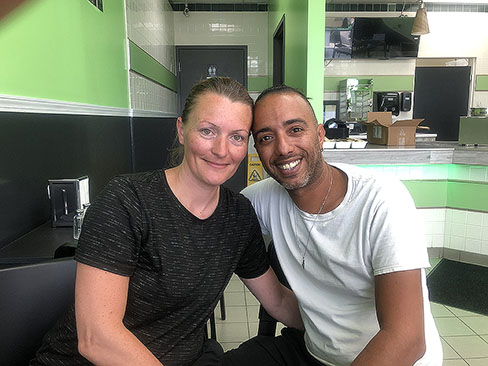
The restaurant is the fulfillment of a dream long held by the husband and wife team of Ariel and Eden Maudi, who have been living in Winnipeg the past 11 years.
Ariel, who was born in Israel and grew up in Beer Sheva, says that he worked in telecommunications in Ramat Gan for several years. He adds though that he had always dreamed of owning his own falafel stand in Israel, but life was difficult there and he decided to come to Canada as a tourist to see whether there were any opportunities here for him, Eden and their two young children.
Eden, who was born in Russia and moved to Israel with her family in 1996, stayed behind with the two kids, who were both pre-schoolers, while Ariel tested the waters in Canada first.
Ariel says he came to Canada as a tourist in 2013. His first stop was in Toronto, where he acquired his 1st class driver’s license. At the end of 2013 he moved to Winnipeg where he began working as a truck driver. Soon he found himself employed as a successful sales person at Vickar Nissan where, he says, he once achieved the status as the top car sales person in Canada. After working at Vickar Nissan for a number of years, Ariel began working as an installer for Bell MTS.
Meanwhile, Eden began working at a Walmart, later at the Costco on Regent.
But, when the opportunity to move into a space that had been previously occupied by another restaurant, but which had closed, became available, Ariel and Eden decided to open their own Israeli restaurant in an area that hadn’t seen Israeli food served since the controversial closure of Bermax Café in 2019.
The Maudis say that they will be serving a variety of Israeli dishes – all vegetarian, and that they will be fully kosher.
The “green” in Green Falafel, by the way, Ariel Maudi explains, comes from the cilantro and parsley that are added to the chickpeas. In addition, their pitas will be coming from Israel and will be baked fresh daily.
The Green Falafel will be open from 10-8 daily. Delivery will be available through Uber Eats and DoorDash.
Call 204-557-7837 for information.
Local News
Previews of shows with Jewish performers at this year’s Fringe Festival July 16-27
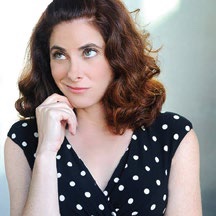
For show dates and venues go to winnipegfringe.com
By BERNIE BELLAN As has been our custom for many years now we try to find shows that have either Jewish performers or themes that would have particular appeal for Jewish audiences. Many of the Jewish performers at this year’s festival have been here before, but several are new. In no particular order here are blurbs about the shows we’ve found that fit the criteria I’ve just described. (By they way, if we’ve omitted a show that should be included in our list there’s plenty of time to get added to this post. Just drop me a line at jewishp@mymts.net.)

You’ve Been Served: A One-Woman Show About Divorce, Cults, and Coming of Age at Midlife
Noemi Zeigler
You are hereby summoned… to laugh, cry, and maybe belt out a Streisand number in solidarity. You’ve Been Served is a raw and riotous solo comedy by writer-performer Noemi Zeigler. It all begins when Noemi is served divorce papers on top of a garbage bin lid while taking out the trash—an undignified start to a full-blown midlife unraveling.
At 50, still clinging to her dream of becoming a singer, she falls under the spell of a music producer slash self-help guru, joins a spiritual cult, and, instead of landing a record deal, she lands in jail. Behind bars, with help from her long-buried inner child, she begins to reclaim her voice and her power. Turns out, dreams really do come true—just not the way she expected.
The show features vividly drawn characters—including a manipulative cult leader, a toxic ex-husband, and a jail guard named Roach who shares Noemi’s obsession with the fashion of Charlie’s Angels (the ‘70s TV version, of course.)
With salsa dancing, twerking, and a belting rendition of Don’t Rain on My Parade, Zeigler dives into abandonment, reinvention, and self-rescue. As she confronts perimenopause, she discovers it’s not the end—it’s the new puberty. The show touches on grief, sexuality, and spiritual confusion, but Noemi’s childlike optimism asks: What if your breakdown is actually your breakthrough?
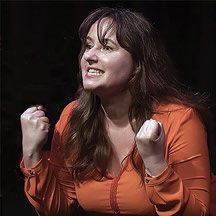
You’re good for nothing… I’ll milk the cow myself
Written & Performed by Natacha Ruck
France, 1981: The first socialist president is about to be elected and young Natacha is ready to implement her own political platform. But first, she has to take down the schoolyard bully,emasculate the rules of French grammar and make off with grandmother’s chocolate.
If you think you know the limits of Jewish mothers, evil grandmothers and transcontinental lovers, meet Natacha Ruck’s family. This true tale of three generations of women, facing three world wars, is equal parts hilarious, shocking and zany.
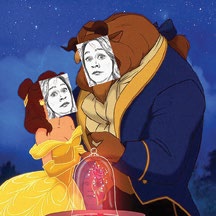
A One Human Being, Potentially Comedic Performance of Beauty and the Beast NEW WORK!
Written & Performed by Alli Perlov
Be our guest! Local high school drama teacher Alli Perlov is back for a tale as old as time. Can she sing? Not really. Can she act? That’s debatable. Will you laugh? Oh… probably.
Perlov plays dozens of characters, some human, some animal, and many objects, in a comedic exploration of Beauty and the Beast.
In an homage to this brilliant musical adventure, through witty commentary and unstoppable energy, Perlov aims to entertain an audience that isn’t forced to be there like her students.

Hockey Sticks and Beaver Pie
Written & Performed by Melanie Gall
Take a trip around Manitoba. From the 30,000 ft. St. Adolphe snow maze to the Narcisse snake dens! After all, where else holds both the title of Slurpee Capital of the World and the Guinness Record for the most people simultaneously howling like wolves?
Deanna Durbin, Terry Jacks and Burton Cummings are among the many homegrown stars, and Hockey Sticks features their music along with original songs and the stories that make this province unique.
Starring Melanie Gall from past shows Piaf & Brel, Ingenue and Toast to Prohibition
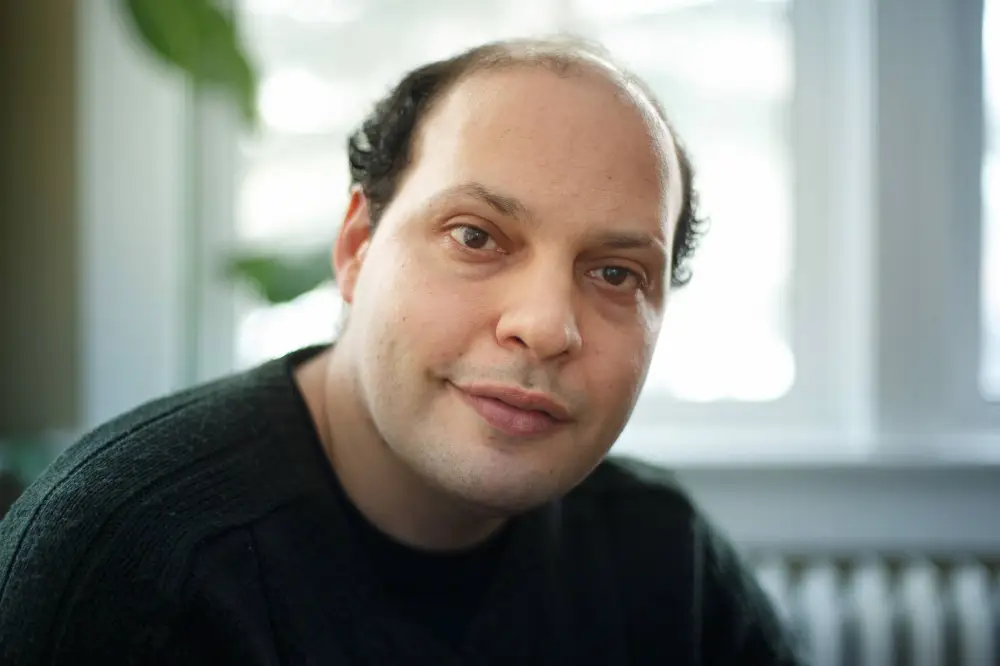
Nerohilarity Exposed
Produced by Adam Schwartz
We all sometimes feel exposed, whether that’s as a fraud or a pretender.
The performers of the award-winning Neurohilarity show, Danielle Kayahara (Laugh Out Loud CBC), Carole Cunningham (Yuk Yuks, The Debaters), Adam Schwartz (Winnipeg Fringe) and Rollin Penner (Yuk Yuks, CBC, Rumors, Winnipeg Comedy Festival), apply a comedic spin to the experiences that make us feel insecure, stripping away the emotional weight with nittygritty jokes and stories that will have you laughing uproariously.
Brilliantly awkward.
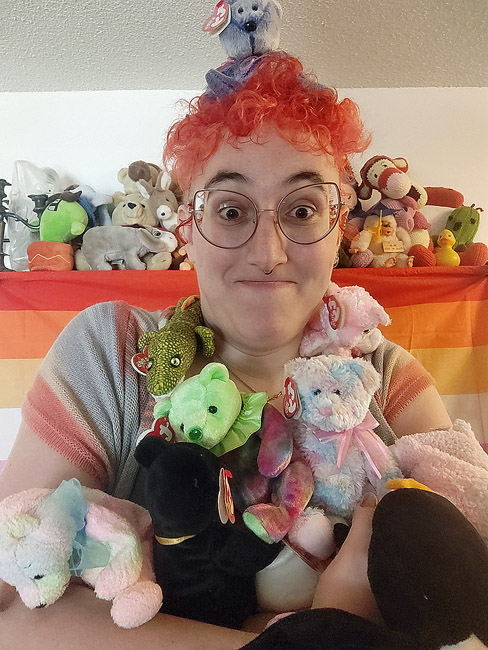
A Lesbian in the Kitchen
Willow Rosenberg
Professional lesbian Willow Rosenberg takes you on a journey through the centuries, superstitions and tablespoons of her lifelong passion for baking in this spiritual successor to 2024’s Jenny Award-nominated A Lesbian in a Bear Store.
Whether you have a favourite spatula, bake once or twice a year, or live in constant fear of being told to “just fold it in”, this one-woman show about family, joy, tradition (but make it gay),
Judaism, comfort, home (but make it gayer*), love, chemistry and magic is for you!
*Who’re we kidding, it’s all gay!

Eleanor’s Story: An American Girl in Hitler’s Germany
Written & Performed by Ingrid Garner
(Ed. note: Although Ingrid Garner isn’t Jewish, we thought the theme of this show might have a special appeal for Jewish readers.)
Based on Eleanor Ramrath Garner’s best-selling memoir, this 16x internationally award-winning adaptation – performed by her granddaughter, Ingrid Garner – details Eleanor’s youth as an American caught in Second World War Berlin.
Punctuated with humour and accompanied by cinematic sound and video, Garner embodies her ancestors in this coming-of-age odyssey, delivering an account of war that is more relevant than ever.
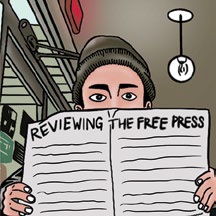
Reviewing The Free Press 2
Benji Rothman
The Winnipeg Free Press has run amok, reviewing each and every Fringe show over the past two decades without consequence or recourse. Now, it’s their turn… again.
In this refurbished work that debuted at last year’s Winnipeg Fringe, Benji Rothman once again takes the Winnipeg Free Press to task. In this (mostly) new, (hopefully) hilarious 45-minute show, Rothman dives deep into their past and exposes their faulty journalism, imbalanced reporting and, of course, embarrassing typos.
Local News
Jewish performers at this year’s Winnipeg Folk Festival July 10-13
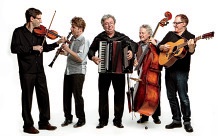
The Black Sea Station
Long ago, there were the klezmorim, itinerant musicians who roamed the back streets of Eastern Europe, playing at parties for meals and a few coins. The sound they honed then was a visceral exploration of life’s joy, and its loss; they could whip audiences into a frenzy of dancing, or bring them to tears with the mournful wail of a clarinet. Today, Winnipeg’s own The Black Sea Station is carrying on this tradition. Featuring Daniel Koulack (bass), Victor Schultz (violin) and Myron Schultz (clarinet) — cofounders of seminal local klezmer act Finjan — along with Moldovan accordion wizard Nikolai Prisacar and multi-instrumentalist Ben Mink, the quintet transports listeners to a time and place long past. Through a mix of original songs rooted in history, and traditional tunes spun up with modern zest, they whirl through the exuberant klezmer sounds of their Eastern European heritage, tending the old ways with deep love and respect.
The Black Sea Station will be performing Sunday, July 13, at 1:00 pm in Snowberry Field.
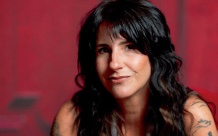
Romi Mayes
Romi Mayes has taken some hard knocks in her life, but she’s never faded away. For more than 25 years, Manitoba’s first lady of blues-rock has been a lynchpin of the Canadian roots scene. She earned that position the old-fashioned way, through her gritty, passionately emotive music. With her sizzling guitars and full-throated rasp, the Juno-nominated performer howls and purrs through razor-edged lyrics, rocking out wherever she can find a stage. She’s long been one of the hardest-working musicians on the circuit, keeping a busy slate of gigs and mentoring up-and-coming artists to get a foothold on the trails she blazed. Now, after a nine-year hiatus from the studio, Mayes has put her scintillating sound back on record with her long-awaited seventh album, Small Victories — a return that leaves no doubt, no matter the ups and downs, Mayes is here to stay.
Romi will be performing Friday, July 11, at 1:00 pm in Burr Oak.
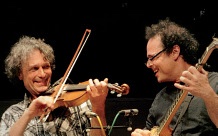
Leonard Podolak (with Matt Gordon)
Ireland’s Matt Gordon is a fiddler and singer, whose fleet-footed clogging and thigh-slapping hambone has taken stages by storm since the 1980s. Leonard Podolak is a virtuosic master of the clawhammer banjo, who for decades has whipped up some of Manitoba’s wildest roots parties with his band, The Duhks. Put those talents together, and they can promise you this much: we’re all gonna have a real good time. Longtime friends and musical collaborators, Gordon and Podolak deliver an exhilarating trip through old-time Appalachian music. Their performances seamlessly blend intricate instrumental lines with heartfelt singing and dazzling dance. They’ve teamed up on a few records over the years, including 2020’s bigband extravaganza Power Wagon: Live At Shanley’s. But the best way to experience this duo’s toe-tapping, hand-clapping chemistry is to see it live.
Podolak and Gordon will be performing A concert with a side of clogging Sunday, July 13, at 3:00 pm in Folk School.
